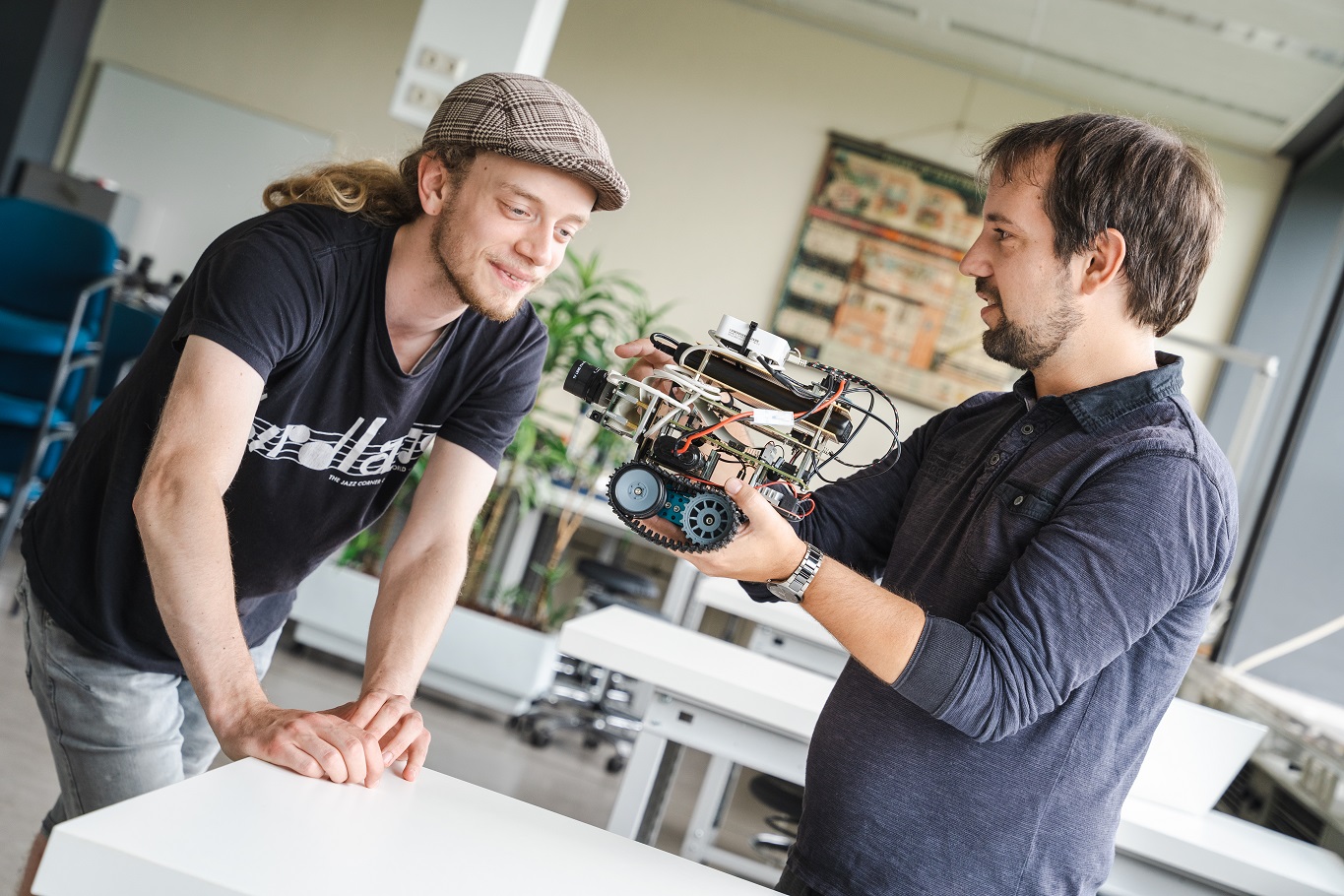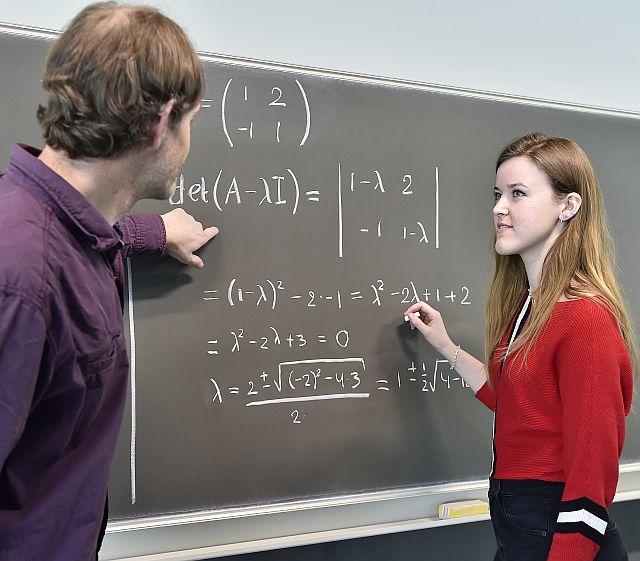Double degree Mathematics-Physics

For dedicated and highly motivated students, we offer the opportunity to study both Mathematics and Physics. This means that you will follow course units in mathematics and physics. As a result, you will be taking more course units than other students during each semester/year, gaining 70 ECTS more than you would in a regular Bachelor’s degree programme (250 ECTS instead of 180 ECTS). In the third year, you are allowed to conduct one Bachelor’s research project that is relevant to both programmes, worth 20 ECTS credit points as opposed to the regular project worth 15 ECTS.
For whom?
-
You are dedicated and highly motivated
-
You are theoretically inclined and have a passion for both mathematics and physics
-
You are prepared to spend extra time on your studies and realize that you might have to sacrifice other activities sometimes
Two Bachelor’s degree programmes
The entire programme per year can be found on Ocasys, the online course catalog of the university
This schedule is merely a suggestion on how to complete the combined Physics and Mathematics programme in three years. Normally, it requires one additional year to complete the combined programme. The academic advisor will advise you about the right programme and pace for you.
Combining Applied Mathematics and/or Applied Physics is also possible, but you will need to take additional course units to meet the requirements of these programmes. Our advice is to start with Mathematics and Physics, and if it turns out that you like Applied Mathematics or Applied Physics more, to make an appointment with the academic advisor and discuss your planning.
Time table
The schedules of both degree programmes are attuned to each other as much as possible. In a rare case, there might be overlap between tutorials, but in our experience it is not necessary for students who are able to handle doing two programmes to follow each tutorial.
BSA
You will be issued study advice at the end of your first academic year. You can expect positive study advice if you have earned at least 45 ECTS for one of the Bachelor’s degree programmes. We recommend that you focus on one of the programmes in the first year, to make sure that you earn enough ECTS for at least one of them.
You will receive preliminary study advice in December to inform you of your study progress. You may be advised to continue with only one of the programmes instead of both.
Admission
Please make sure that you meet the admission requirements for both degree programmes. Be aware that other requirements apply for Physics than for Mathematics.
You can find the requirements on the regular programme pages:
Application
You can apply online in Studielink for both degree programmes. You do not need to ask for permission from the academic advisor in advance.
Before you start a Bachelor’s degree programme, we advise you to make sure that you choose the programme that suits you best in terms of difficulty and content. Following a web class helps you to check whether you have made the right choice, which is especially important in the case of a double degree.
Are you already following either the Mathematics or Physics programme, and would you like to add another degree programme? In this case, contact your study advisor, as it is not possible to start a second programme in the middle of the academic year. It is possible to discuss whether you could already join some course units, and together you can set up a good plan.
Tuition fees
Dutch students and EU students only have to pay the statutory tuition fee once.

"A lot of pressure, but the physics adds to your maths knowledge and vice versa"

Inés Desojo Garcia & Maria Diaz Marrero
Inés: In secondary school, I already knew that I wanted to study maths, but I was afraid that I would miss physics a lot. So I hesitated for a long time, and came to the conclusion that I actually wanted to study both. I couldn't find an appealing way of combining the two in Spain, so I looked further afield and settled on Groningen.
Maria: I also wanted to study mathematics, and a friend who was already living in the Netherlands told me that Groningen was a really nice university city. I saw that you could combine maths with physics, and I wanted to try that.
At the start it was a lot of pressure. But what is really nice about following both programmes is that the physics adds to your maths knowledge and vice versa. You get a much better grounding in both disciplines.
Inés: You really get to understand the connection between mathematics and physics. Sometimes, this really proves to be an advantage: in the third year, you follow a course unit on symmetry in physics but you will have already followed a course unit on symmetries in the second year of mathematics.
The amount of time you spend studying varies per block. But if you follow four course units per block, both lectures and tutorials, you will already have 32 contact hours per week. Then there is self-study on top of that. We both keep track of that. At school, I could sometimes do all my work at the last minute, but that is no longer possible.
Maria: You obviously have more exams as well. You are always the first to have exams in the exam period, you are the last to finish, and you have less time to prepare in between than the students who only study mathematics or physics. You also need to be good at organizing your work: for example, if you have overlapping tutorials and you need to cover one by getting someone else’s notes. It is important to be able to prioritize well.
But it’s doable, we have time left for holidays and a social life. Things can also work out conveniently: sometimes we study together in a group in the library and do something fun together after, once we’re done.
Inés: It can be quite overwhelming when you start. But don’t lose heart; sometimes it just takes a while to figure out how to manage this combination successfully. And you won’t understand some course units at first, but in the end it all comes together.
Maria: Exactly, don’t feel stupid. Give yourself time, be patient. If you work hard, you’ll make it.
| Laatst gewijzigd: | 19 maart 2025 12:26 |
